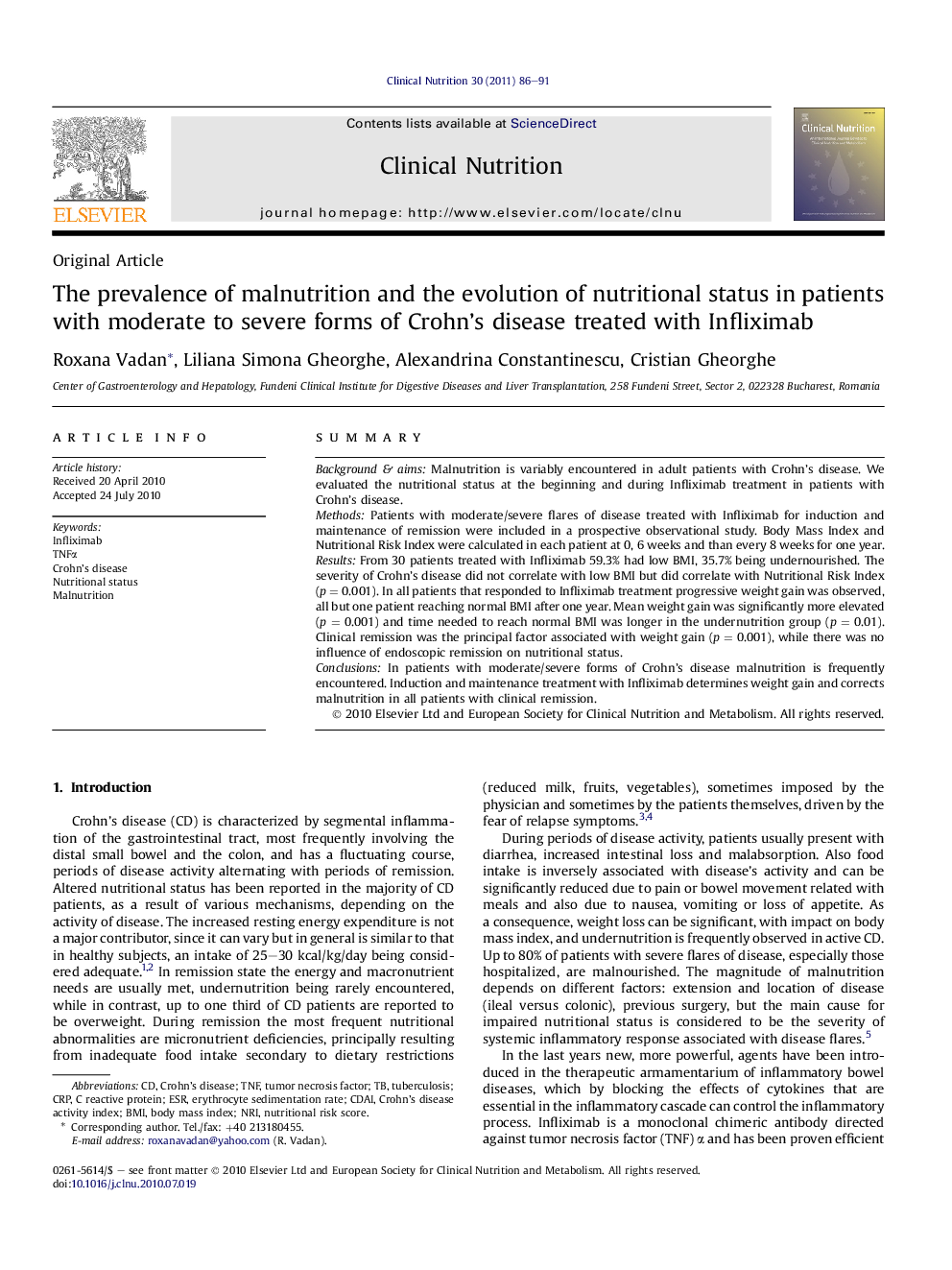| Article ID | Journal | Published Year | Pages | File Type |
|---|---|---|---|---|
| 2684189 | Clinical Nutrition | 2011 | 6 Pages |
SummaryBackground & aimsMalnutrition is variably encountered in adult patients with Crohn’s disease. We evaluated the nutritional status at the beginning and during Infliximab treatment in patients with Crohn’s disease.MethodsPatients with moderate/severe flares of disease treated with Infliximab for induction and maintenance of remission were included in a prospective observational study. Body Mass Index and Nutritional Risk Index were calculated in each patient at 0, 6 weeks and than every 8 weeks for one year.ResultsFrom 30 patients treated with Infliximab 59.3% had low BMI, 35.7% being undernourished. The severity of Crohn’s disease did not correlate with low BMI but did correlate with Nutritional Risk Index (p = 0.001). In all patients that responded to Infliximab treatment progressive weight gain was observed, all but one patient reaching normal BMI after one year. Mean weight gain was significantly more elevated (p = 0.001) and time needed to reach normal BMI was longer in the undernutrition group (p = 0.01). Clinical remission was the principal factor associated with weight gain (p = 0.001), while there was no influence of endoscopic remission on nutritional status.ConclusionsIn patients with moderate/severe forms of Crohn’s disease malnutrition is frequently encountered. Induction and maintenance treatment with Infliximab determines weight gain and corrects malnutrition in all patients with clinical remission.
